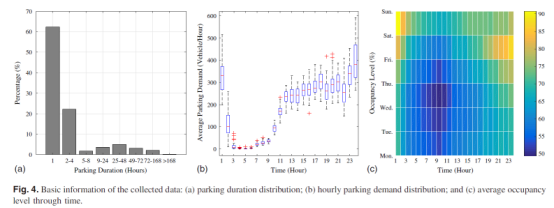Journal of Transportation Engineering, Part A: Systems, July 2018 | Volume 144, Issue 7
Impact Factor: 0.983
The time limited-parking management plan has been widely adopted in curbside parking and in terminal parking. This plan separates parking spaces into several parking groups and manages each group with a specific duration limit. By doing so, the turnover rates and the availability of convenient parking resources are increased. In this paper, a bilevel programming model is proposed for designing a time limited-parking management plan. The proposed model is to figure out the optimal duration limit for each parking group and the number of spaces in each group, by minimizing travelers' average walking time. A solving procedure based on a genetic algorithm is presented to estimate appropriate results. To test the effectiveness of the proposed model, a case study is designed based on the transaction data and parking configuration at the Shanghai Hongqiao P7 parking garage. The estimated result reveals that the designed time-limited plans lead to more than a 25% decrease in the average walking cost by better utilizing convenient parking spaces.



